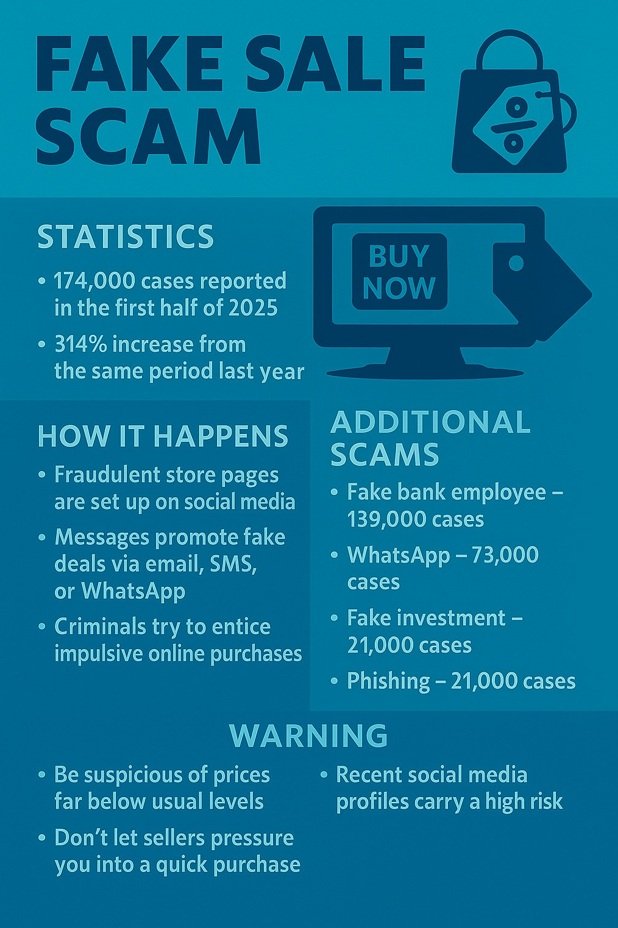The fake sales scam was the most frequently reported criminal practice by customers of financial institutions linked to the Brazilian Federation of Banks (Febraban), with 174,000 occurrences recorded in the first six months of 2025. This figure represents a dramatic 314% increase compared to the same period last year, when 42,000 complaints were registered. In this scheme, criminals set up fraudulent store pages on social networks and circulate messages advertising non-existent promotions through email, SMS, or WhatsApp, taking advantage of impulsive purchases and the growing volume of online transactions.
This Content Is Only For Subscribers
To unlock this content, subscribe to INTERLIRA Reports.
Attention
“Always exercise great caution. Is the product offered at a price far below what is normally found in legitimate stores? Is the seller creating pressure for you to make a quick purchase, claiming the item may soon be unavailable? Is the online store a recently created profile on a social network? In such cases, the likelihood of fraud is very high,” warns Walter Faria, Deputy Director of Services and Security at Febraban. He also notes that extra vigilance is needed at this time of year, when major shopping periods such as Black Friday and Christmas approach, creating fertile ground for scammers to intensify their activity and exploit unsuspecting consumers.
Fake Bank Employee
The second most reported scam, with 139,000 complaints, involved fraudsters impersonating bank call center agents or financial institution employees to request sensitive personal information or prompt unauthorized transfers. Following this type of fraud are WhatsApp scams (73,000), which typically involve cloning or hijacking the victims’ accounts; fake investment schemes (21,000), in which criminals persuade victims to place money into nonexistent financial products; and phishing scams (21,000), based on deceptive emails or messages containing malicious links designed to steal personal and banking data.
Analysis:
The sharp rise in fake sales scams reflects how Brazil’s digital economy has become a prime target for increasingly sophisticated cybercriminal networks. A 314% increase in reported cases in just one year demonstrates not only the expansion of fraudulent activity but also the persistence of structural vulnerabilities in consumer awareness and digital literacy. Criminals are exploiting impulsive purchasing behavior and the ease of creating deceptive online storefronts, particularly on social media, where the line between legitimate advertising and fraud is often blurred. This trend signals a growing challenge for both regulatory agencies and financial institutions seeking to strengthen consumer protection mechanisms.
The prominence of scams involving fake bank employees and WhatsApp cloning reveals a deeper problem: the erosion of public trust in official communication channels. Fraudsters are taking advantage of users’ reliance on digital banking and messaging apps to bypass technical barriers through psychological manipulation.

Sources: Extra; Febraban; UOL Notícias.




